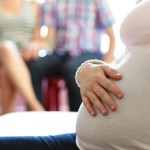The Instrumentum laboris of the next Synod of Bishops / 1
The Instrumentum laboris of the next Synod of Bishops / 2
The theme of the Synod is the family in the context of evangelization. Not surprisingly, then, the document reflects on the majority of “irregular” situations in the context of the education given to children. But it notes that “irregular” are situations, not people (138). A person always deserves respect, and when he or she turns to the Church with a request for the spiritual well-being of children this is always an opportunity to establish a pastoral contact. Even more important is to emphasize that children – regardless of the family context in which they come into the world – should always be treated in the same way. They are not to be blamed for the life choices of their parents (149).
In the case of divorced and separated, the diversity of situations is emphasized. Of particular note are separated who remained loyal to the marriage vows. They are called “new poor” in a world dominated by a “culture of waste”. Their suffering and loneliness are a great Christian witness to the modern world (87, 97).
The document notes, however, that many Catholics do not see a direct connection between the divorce, the Eucharist and the Sacrament of Penance (91). Therefore, if they turn to the Church, even asking for access to the sacraments, it happens that – rather than a genuine reconciliation with God – they seek relief from suffering, they want to overcome the feeling of being mistreated and marginalized by the Church or seek effective recognition of another union (93, 95).
The working paper devotes much space to the necessity of opening to every human being and to the attitude to be adopted towards everyone, which must be a mother’s one, rather than a judge’s (103). This also applies to divorced people who live new unions. Many conferences recall that also in such situations it is possible to participate actively in the life of the Church, for example in prayer groups, in liturgical moments and charitable activities. There is also the opportunity to receive a personal blessing for those who cannot receive Holy Communion (104). In the case of such practices, however, caution is recommended, not to cause the impression that the Church introduces a “Catholic divorce” through the back door (99).
The Bishops’ Conferences indicate a gradual “privatization” of marriage and the family in Europe too. The state tends to equate marriage to other types of cohabitation, while on the other hand it does not recognize genuine public value to marriage. The lack of family policies (and sometimes anti-family policies) are one of the reasons that lead young people not to marry and not to have children: both marriage and the birth of a child in the world are associated with an economic loss (83). The underestimation by the State of the family as the creator of the social capital (to teach children love, education, ethical values, the capacity to enter into relations with other people, solidarity, etc…), as well as a place in which citizens enter the world, contributes to the demographic crisis experienced in Europe (33-34). “Policies leading to a decline in the birth rate are having an effect on the quality of marital relationships and relationships between generations” (130). The promotion of an ideology called gender theory ruin the foundations of social life (23). Instead, just laws should be promoted, such as those which ensure the right to life from the moment of conception and those which promote the social goodness of an authentic marriage between a man and a woman (34).
In conclusion, it is worth noting – as pointed out by Msgr. Bruno Forte during the presentation of the document – that, according to the will of Pope Francis, the Synod will have a pastoral nature. “The doctrine of the Church, reiterated several times in recent years by various ministerial interventions, is not in issue. The reflection required is on pastoral applications, on how to propose doctrine, how to accompany its reception and practice, how to show clearly the humanizing potential in the face of a widespread lack of knowledge or misunderstanding.” The family in crisis is particularly in need of care on the part of the Church (46). In addition to the bandage it is however necessary that the Church shows the beauty and attractiveness of family life (via pulchritudinis – the way of beauty – 59), marriage as a vocation, and parenting as a gift from God (49).
(3/end)
Il tema del Sinodo è la famiglia nel contesto dell’evangelizzazione. Non sorprende, quindi, che si rifletta sulla maggior parte delle situazioni “irregolari” nel contesto dell’educazione data ai bambini. Ma si osserva che “irregolari” sono le situazioni, non le persone (138). Una persona merita sempre rispetto, e quando si rivolge alla Chiesa con una richiesta per il benessere spirituale dei bambini è sempre l’occasione per stabilire un contatto pastorale. Ancora più importante è sottolineare che i bambini – a prescindere dal contesto familiare in cui sono venuti al mondo – devono essere sempre trattati in modo identico. Essi non sono colpevoli per le scelte di vita dei loro genitori (149).
Nel caso di divorziati e separati si sottolinea la diversità delle situazioni. Di particolare rilievo sono i separati rimasti fedeli al vincolo. Essi sono chiamati “nuovi poveri” in un mondo dominato da una “cultura dello scarto”. La loro sofferenza e la solitudine costituiscono una grande testimonianza cristiana per il mondo moderno (87;97).
Il Documento rileva, però, che molti cattolici non vedono il collegamento diretto tra il divorzio, l’Eucaristia e il sacramento della Penitenza (91). Quindi, se si rivolgono alla Chiesa, anche chiedendo l’accesso ai sacramenti, succede che – più che una vera e propria riconciliazione con Dio – cercano sollievo dalla sofferenza, vogliono superare la sensazione di essere maltrattati ed emarginati dalla Chiesa o cercano il riconoscimento effettivo di un’altra unione (93; 95).
Il Documento di lavoro dedica molto spazio alla necessità dell’apertura a ogni essere umano e all’atteggiamento da adottare verso ognuno, che dev’essere quello di una madre, più che di un giudice (103). Questo vale anche per le persone divorziate che vivono nuove unioni. Molte Conferenze ricordano che anche in tali situazioni è possibile partecipare attivamente alla vita della Chiesa, per esempio nei gruppi di preghiera, in momenti liturgici e attività caritative. C’è anche la possibilità di ricevere una benedizione personale per chi non può ricevere la Santa Comunione (104). Nel caso di tali pratiche, tuttavia, la prudenza consiglia di non causare l’impressione che la Chiesa attraverso la porta sul retro introduca un “divorzio cattolico” (99).
Gli episcopati indicano anche in Europa una progressiva “privatizzazione” del matrimonio e della famiglia. Lo Stato tende a equiparare al matrimonio altri tipi di convivenza, mentre d’altra parte non riconosce valore pubblico al matrimonio autentico. La mancanza di politiche familiari, e talvolta le politiche anti-famiglia, sono uno dei motivi che portano i giovani a non sposarsi e a non fare figli: sia il matrimonio sia la nascita di un bambino nel mondo vengono associati a una perdita economica (83). La sottovalutazione, dalla parte dello Stato, della famiglia come creatrice del capitale sociale (insegnare ai bambini l’amore, l’educazione ai valori etici, la capacità di entrare in relazione con altre persone, la solidarietà ecc.), così come luogo nel quale i cittadini vengono al mondo, contribuisce alla crisi demografica sperimentata in Europa (33-34). “Le politiche di denatalità cambiano la qualità del rapporto tra i coniugi e la relazione tra le generazioni” (130). La promozione di un’ideologia chiamata gender theory rovina i fondamenti della vita sociale (23). Invece, si dovrebbero promuovere leggi giuste, come quelle che garantiscono il diritto alla vita dal momento del concepimento e quelle che promuovono la bontà sociale del matrimonio autentico tra la donna e l’uomo (34).
In conclusione, vale la pena notare – come sottolineato da mons. Bruno Forte durante la presentazione del Documento – che, secondo la volontà di papa Francesco, il Sinodo avrà carattere pastorale. “Non è in discussione la dottrina della Chiesa, più volte ribadita anche negli ultimi anni da vari interventi ministeriali. La riflessione richiesta è sulle applicazioni pastorali, sul modo di proporre la dottrina, di accompagnare la recezione e la pratica, di mostrarne in maniera chiara le potenzialità umanizzanti a fronte di una diffusa non conoscenza o incomprensione”. La famiglia in crisi è particolarmente bisognosa di cure da parte della Chiesa (46). Oltre al bendaggio è necessario, tuttavia, che la Chiesa mostri la bellezza e l’attrattività della vita familiare (via pulchritudinis – 59), il matrimonio come una vocazione, e la genitorialità come un dono da Dio (49).
(3/fine)
Réfléchir sur la fragilité
L’argument du Synode est la famille dans le contexte de l’évangélisation: il n’est pas surprenant que le document réfléchisse sur les situations “irrégulières” pour ce qui concerne l’éducation des enfants. Toutefois il est important de souligner que “irrégulières” sont les situations et non les personnes (138). La personne mérite toujours du respect, et le moment où elle s’adresse à l’Église pour le bien-être spirituel des infants peut être l’occasion pour établir un contact pastoral. En autre, il est important de souligner comme tous les infants doivent être traités en manière égalitaire, indépendamment du contexte familial dans le quel ils ont nés: ils ne sont pas coupables des choix de vie de leurs parents (149).
Le document marque une différentiation entre les séparés et les divorcés. En particulier, le séparés qui sont resté attachés au lien du mariage, sont considérés comme des “nouveaux pauvres” dans le monde où règne la “culture du rebut”: leurs souffrance et solitude devient témoignage chrétien pour le monde moderne (87; 97). Cependant, le texte met en évidence le fait que plusieurs catholiques ne voient pas la différence entre le divorce, l’Eucharistie et le sacrement de pénitence (91). C’est-à-dire, quand ils s’adressent à l’Église pour avoir accès aux sacrements, il arrive qu’ils demandent plutôt un soulagement à la souffrance pour surmonter l’impression d’avoir étés éloignés de l’Église, et la reconnaissance effective d’une autre relation, et non une vraie réconciliation avec Dieu (93; 95).
Le document affirme la nécessité, de la part de l’Église, de s’ouvrir envers chaque être humain, en adoptant une attitude de mère et non de juge (103): il est valable aussi pour les divorcés qui vivent une autre relation. Plusieurs conférences épiscopales rappellent que même en ces cas il est possible pour les divorcés de prendre part à la vie de l’Église, par exemple en participant aux groupes de prière, aux moments liturgiques et aux activités bénévoles. En plus, il existe la possibilité de recevoir une bénédiction individuelle pour ceux qui ne peuvent pas recevoir l’Eucharistie (104). Dans ces cas là, il est toutefois nécessaire de préciser que l’Église ne veut pas donner l’impression de vouloir inciter au “divorce catholique” (99).
Les épiscopats soulignent une progressive privatisation du mariage e de la famille en Europe, parce que souvent l’État égalise les autres liens au mariage, tandis qu’il n’accorde pas au mariage proprement dit un intérêt public. Le manque de politiques familiales, et parfois la présence de politiques anti-famille, peuvent empêcher les jeunes à se marier et à avoir des enfants, parce que le mariage et la naissance d’un enfant sont considérer comme une perte économique (83). Sous-évaluer la famille comme créatrice de capital social (éduquer les enfants à l’amour, aux valeurs étiques, à la capacité d’avoir des relations sociales, à la solidarité, etc.) et comme lieu dans le quel les citoyens viennent au monde, signifie pour l’État contribuer au déclin démographique expérimenté par l’Europe (33-34). “Les politiques de dénatalité changent la qualité des relations entre les époux et la relation entre les générations” (130). Promouvoir l’idéologie de la gender theory signifie abimer les fondamentaux de la vie sociale (23), tandis qu’il faudrait promouvoir des lois qui garantissent le droit à la vie du moment de la conception et des lois qui reconnaissent la validité sociale du mariage entre la femme et l’homme (34).
Comme il a été souligné par Mgr. Bruno Forte lors de la présentation du document, il vaut la peine de signaler que le Synode, selon la volonté du pape François, aura caractère pastoral. “La doctrine de l’Église, plusieurs fois confirmée par des interventions ministérielles, n’est pas mise en discussion. La réflexion demandée concerne les applications pastorales, la façon de proposer la doctrine, d’en accompagner la réception et la pratique, de démontrer en manière claire les potentialités humaines face à une profonde ignorance ou incompréhension”.
La famille en crise est particulièrement besogneuse d’attentions de la part de l’Église (46). Outre ces soins il est néanmoins nécessaire que l’Église démontre la beauté et l’attraction de la vie familiale (via pulchritudinis – 59), le mariage comme une vocation et le fait de devenir géniteur comme un don de Dieu (49).
(3/fin)
The Instrumentum laboris of the next Synod of Bishops / 1
The Instrumentum laboris of the next Synod of Bishops / 2
Piotr Mazurkiewicz
Latest posts by Piotr Mazurkiewicz (see all)
- End of life: what is the true right? - 31 dicembre 2014
- Reflect on the fragility - 31 luglio 2014
- The value of marriage - 25 luglio 2014











